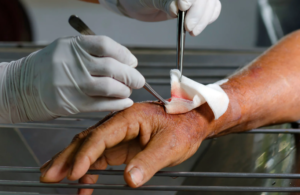Prolapse can affect quality of life, causing discomfort, reduced mobility, and emotional strain. Whether it develops after childbirth, due to aging, or because of other physical changes, prolapse is a condition that can be managed effectively. Prolapse Treatment Fishers at Osteopractic Physical Therapy of Central Indiana (OPTCI) offers expert guidance, tailored therapy, and support to restore pelvic health, comfort, and confidence.
Pelvic organ prolapse occurs when muscles and tissues supporting the bladder, uterus, or rectum weaken, allowing organs to shift downward. This can lead to a variety of uncomfortable symptoms, including pressure in the pelvic area, tissue bulging, difficulty with urination or bowel movements, and lower back pain. Many people delay seeking care, believing symptoms are a normal part of aging or postpartum recovery. Early intervention through Prolapse Treatment Fishers can prevent further complications and improve daily functioning.
Understanding Prolapse
What Is Prolapse?
Prolapse refers to the downward movement or displacement of pelvic organs due to weakened muscles or connective tissue. This condition often affects women who have experienced vaginal childbirth, hormonal changes during menopause, or chronic straining from constipation or heavy lifting. Prolapse can range from mild, with subtle symptoms, to more advanced stages that require comprehensive care.
Common Signs and Symptoms of Prolapse
Recognizing prolapse early is essential to receiving effective treatment. Symptoms often include:
- A feeling of heaviness or pressure in the pelvic region
- Tissue bulging or protrusion in the vaginal area
- Difficulty starting or completing urination
- Constipation or straining during bowel movements
- Lower back discomfort or aching
- A sensation of incomplete bladder or bowel emptying
Experiencing one or more of these signs signals that the pelvic muscles and tissues may need targeted therapy. OPTCI provides individualized Prolapse Treatment Fishers programs to address these issues and help patients regain pelvic stability and control.
Why Pelvic Floor Physical Therapy Works for Prolapse
Pelvic floor physical therapy is a non-surgical, evidence-based approach to managing prolapse. It focuses on strengthening the muscles supporting pelvic organs, improving tissue flexibility, and retraining proper bladder and bowel function. This therapy not only alleviates symptoms but also reduces the risk of prolapse progression over time.
Through exercises and techniques provided by trained physical therapists, patients learn to restore pelvic muscle strength, coordination, and endurance. Prolapse Treatment Fishers at OPTCI helps patients improve posture, reduce discomfort, and regain confidence in daily activities. This conservative approach allows many individuals to avoid invasive procedures while still achieving measurable improvement in function and quality of life.
OPTCI’s Approach to Prolapse Treatment in Fishers
Personalized Treatment Plans
Every patient at OPTCI receives a customized plan designed to address their unique symptoms, physical condition, and lifestyle. Physical therapists conduct a thorough assessment of muscle strength, coordination, and overall pelvic health before developing a treatment strategy. This patient-centered approach ensures that therapy targets the specific factors contributing to prolapse for each individual.
Core Components of OPTCI’s Prolapse Therapy
Pelvic Floor Muscle Training: Strengthening exercises focus on the muscles supporting the bladder, uterus, and rectum. These exercises help reduce symptoms like heaviness and tissue bulging while improving bladder and bowel control.
Manual Therapy Techniques: Hands-on methods release tension, improve tissue flexibility, and enhance muscle function in the pelvic region. Manual therapy helps restore balance and alignment for long-term stability.
Bowel and Bladder Retraining: Patients learn strategies to improve control and reduce straining during urination and bowel movements. Proper retraining prevents additional stress on weakened tissues.
Postural and Alignment Exercises: Strengthening the core and improving posture supports pelvic health. These exercises reduce discomfort and enhance stability during daily movements.
Lifestyle Adjustments: Guidance on ergonomics, lifting techniques, and healthy habits complements therapy to promote lasting pelvic health.
This multi-faceted approach ensures comprehensive care. Patients benefit from measurable improvements while building habits that support pelvic wellness beyond therapy sessions. OPTCI’s team guides every step of the process, offering encouragement, education, and feedback.
What to Expect During Prolapse Treatment at OPTCI
The first step in Prolapse Treatment Fishers is a detailed evaluation. During the initial consultation, physical therapists discuss your symptoms, medical history, and daily activities. This assessment helps identify muscle weaknesses, imbalances, and functional limitations that may contribute to prolapse.
A pelvic floor assessment may include evaluating muscle tone, coordination, and endurance. This information is used to create a customized treatment plan. Initial sessions typically last about an hour, during which therapists introduce exercises and techniques at a comfortable pace.
Patients gradually progress through therapy, building strength, flexibility, and control. Home exercise programs support in-clinic therapy, allowing patients to maintain progress and accelerate recovery. OPTCI emphasizes consistent monitoring and adjustment of exercises based on patient response, ensuring safe and effective outcomes.
Benefits of Choosing OPTCI for Prolapse Treatment
Experienced and Compassionate Therapists: OPTCI therapists specialize in pelvic health and prolapse treatment. Patients receive personalized guidance from professionals trained in evidence-based care.
Advanced Pelvic Health Care: OPTCI uses proven techniques for non-surgical prolapse management. Therapy focuses on restoring function, reducing symptoms, and improving quality of life.
Comfortable Clinic Environment: Private, supportive spaces allow patients to feel comfortable during evaluations and therapy sessions.
Long-Term Results: Therapy combines exercises, manual techniques, and lifestyle guidance to provide sustainable improvements in pelvic strength and function.
Choosing OPTCI means working with a team committed to patient success. Individuals seeking Prolapse Treatment Fishers can trust a comprehensive, compassionate approach designed to meet their unique needs.
Take the First Step Toward Recovery
Prolapse should not limit daily life. Effective therapy can restore comfort, stability, and confidence. Prolapse Treatment Fishers at OPTCI provides expert evaluation, tailored therapy, and ongoing support for long-term pelvic health. Contact OPTCI today to schedule a consultation with a pelvic floor physical therapist and take control of your recovery.
Frequently Asked Questions (FAQ)
What causes prolapse?
Prolapse is caused by weakened pelvic muscles and tissues. Common factors include childbirth, aging, hormonal changes, heavy lifting, and chronic straining during bowel movements.
Can prolapse be reversed without surgery?
Many mild to moderate prolapse cases can be managed effectively with pelvic floor therapy. Strengthening muscles and retraining bladder and bowel function often improves symptoms and prevents progression.
How long does prolapse treatment take?
Treatment length varies depending on the severity of prolapse and individual response. Most patients see improvement within a few weeks to months, with ongoing exercises supporting long-term results.
Is pelvic floor therapy painful?
Therapy is generally gentle. Manual techniques and exercises are introduced gradually, and physical therapists adjust intensity based on patient comfort.
How do I know if I need prolapse treatment?
If you experience pelvic pressure, tissue bulging, difficulty with urination or bowel movements, or lower back discomfort, a consultation with OPTCI can determine whether pelvic floor therapy is appropriate.
Can men benefit from prolapse therapy?
While prolapse most commonly affects women, men with pelvic floor weakness or post-prostate surgery issues may also benefit from targeted therapy. OPTCI provides individualized evaluation for all patients.






